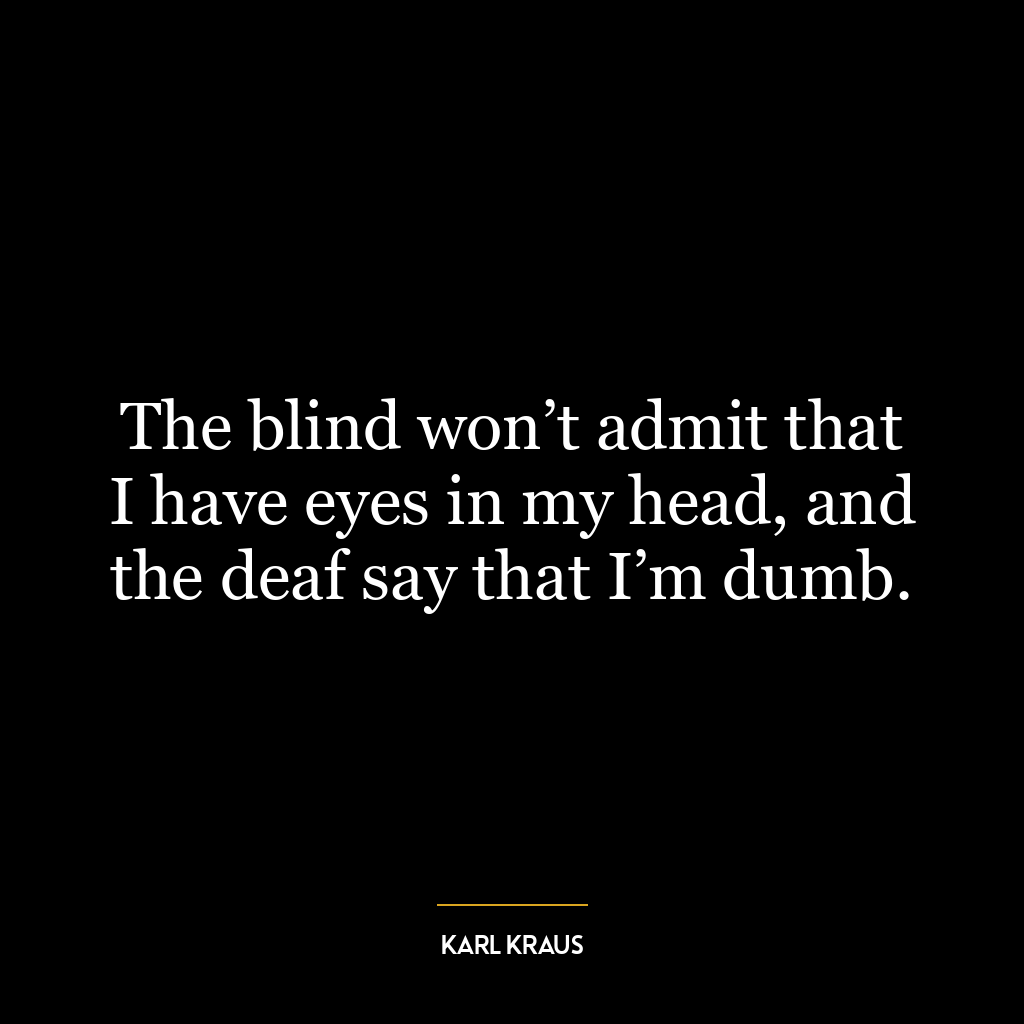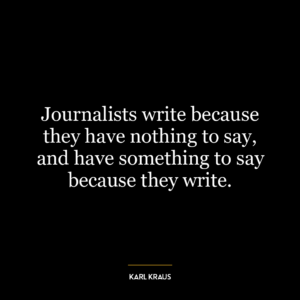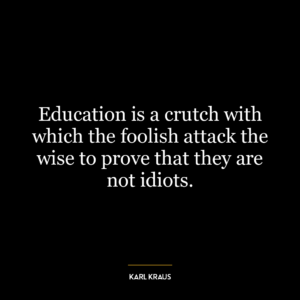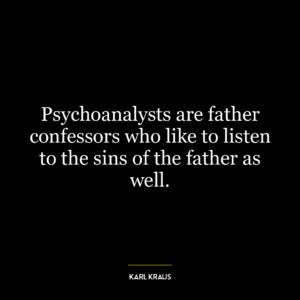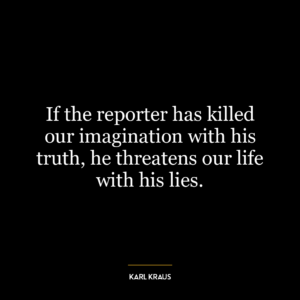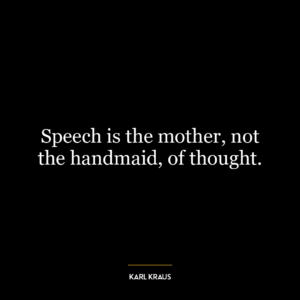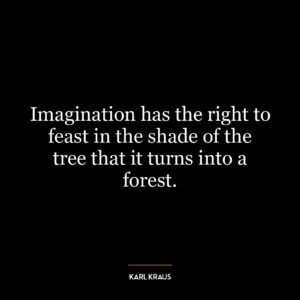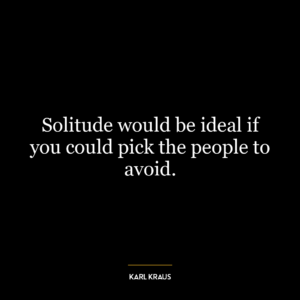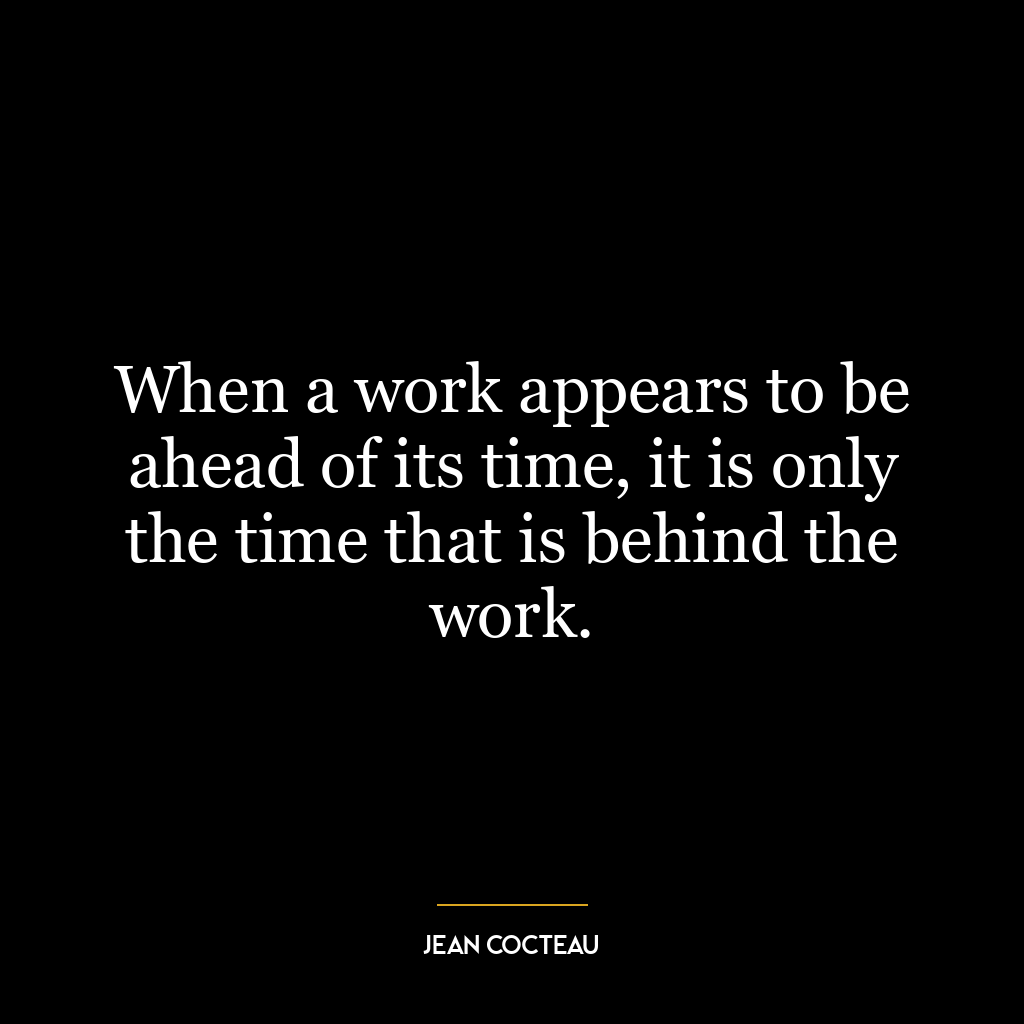The blind won’t admit that I have eyes in my head, and the deaf say that I’m dumb.
This quote emphasizes the tendency of people to judge or perceive others based on their own limitations or biases. The blind not admitting that the speaker has eyes suggests that they are unable to recognize abilities or perspectives beyond their own experience. Similarly, the deaf claiming that the speaker is dumb (unable to speak) indicates their projection of their own inability to hear onto the speaker.
This quote is a metaphor for how people often project their own limitations, insecurities, or biases onto others. They may fail to recognize or acknowledge abilities, experiences, or perspectives that are different from their own, leading to misunderstanding or miscommunication. This can be due to lack of empathy, ignorance, or a defensive mechanism to protect their own ego.
In today’s world, this idea is highly relevant, especially in the context of social, cultural, and political divides. People with different beliefs, values, or experiences often struggle to understand or accept each other’s perspectives. This can lead to conflict, discrimination, and polarization. For example, someone who has never experienced poverty may struggle to understand the challenges faced by those in low-income situations and may unfairly judge them based on their own privileged perspective.
In terms of personal development, this quote encourages self-awareness and empathy. It reminds us to be aware of our own biases and limitations and to strive to understand and respect others’ perspectives. It also highlights the importance of communication and open-mindedness in overcoming misunderstandings and creating a more inclusive and understanding society.

